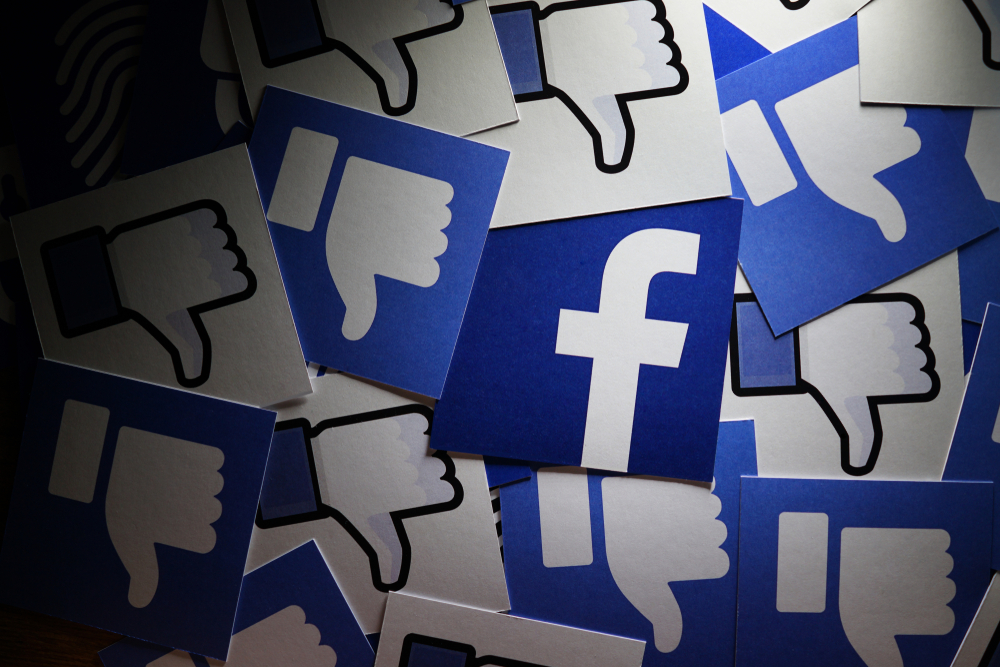On Wednesday, federal officials and the state filed innovative lawsuits against Facebook. It is the most severe regulatory intimidation experienced by this social media giant.
The suits aim to change Facebook’s social media domain by re-designing a couple of its applications; WhatsApp and Instagram. They are very popular and have more than a billion users. Facebook has reacted by saying it will put up a long fight in court and alleges that the regulators approved the acquisitions years back but have now changed their stand.
The impending fight is a result of years of condemnation by publishers, lawmakers, and different groups. They have complained about how Facebook has created disorder in society.
The main bone of contention in this case is not just Facebook’s future but the control that state enforcers have in holding all types of businesses liable in a digital era.
‘If they win the case, it will greatly change the operations of rivalry in the social network space,’ stated Washington Center for Equitable Growth antitrust expert Micheal Kades. The company provides economical solutions.
However, despite the start of this great legal war, the result is very uncertain. First, state prosecutors need to provide evidence for their case in a tough battle that may take years to be solved.
Also, even if the ruling is that Facebook is accountable for breaching the law and even if the courts rule that a breakup should occur, it might not be sufficient to solve all the issues Facebook is experiencing. For instance, how it enabled conspiracy theories and false information, say consumer advocates and legal professionals. The bottom line is that you should not anticipate change soon.
A difficult case
The Federal Trade Commission and State officials will experience a challenging job in court. They need to prove that Facebook has sole autonomy and has misused that power using methods that have been harmful to consumers or rivals.
The lawsuit’s main allegation is that Facebook had a negative impact on competitors by naming possible rivals, then taking over these companies before they could pose a danger to its monopoly.
The suits claim that Facebook’s purported market dominance has led to fewer options for consumers and made the marketplace less innovative.
The complaints provide facts about Facebook’s supposed misbehavior, such as conversations between company executives. However, this is not the only factor that governments should present.
According to legal experts, the judge who will preside the case will possibly wish to find out the likely consequences of Facebook not taking over WhatsApp or Instagram. The most challenging part is trying to convince judges about the possibility of a future that never took place.
‘You need to set up a different world where Facebook did not acquire Instagram and where Instagram developed and succeeded,’ stated an ex-chairman of the Federal Trade Commission, William Kovacic.
‘Facebook will ask two things; how we are certain about what would have transpired? They will also ask us to think of the consequences after we purchased them.’
Already, Facebook is getting ready for that dispute. On Wednesday, a statement reacting to the suits stated that the firm had invested significant sums of dollars and a tremendous number of hours to turn Instagram and WhatsApp into handy services compared to how they were before Facebook bought them.
‘We thought that these firms would provide big gains to our Facebook users and that we could assist in changing them and enhance them even more. Facebook says they managed to do this.’
‘Individuals all over the globe chose our products because we improve their lives, not because they had no other options.’
A doubtful court might also enquire from FC the reason its changing its decision to permit Facebook to take over Instagram and WhatsApp. Facebook has expressed grievances that the suits are about a type of regulatory buyers’ guilt and that the state is looking for an unfair ‘do-over.’
It will be the state’s responsibility to explain the reason it changed its decision. Joe Simons, the FTC Chairman, disputed that assessing completed mergers is not just a regulator’s right but a duty. He modified the agency’s endeavor to check previous mergers in September, to assess the output of the law enforcement.
‘Merger retrospectives provide an effective method of carrying out serious self-assessment to check whether our antitrust implementation is operating effectively,’ remarked Simon at the time.
A breakup is not guaranteed.
A court might concede that Facebook breached antitrust regulation. However, it does not essentially signify that a breakup will happen. It is just one among many likely results, and the courts will make the final decision.
In case a judge finds Facebook guilty of behaving unlawfully, they may resolve to set limitations on Facebook’s actions. For instance, making it a requirement to inform the state about all the mergers in the future. They may order a kind of regulatory regime, which compels Facebook to use information differently.
Facebook may be told to separate some of its assets like Instagram or WhatsApp, and other numerous ones it acquired over the years.
For consumers, a significant change may be a newly liberated Instagram or WhatsApp. Mark Zuckerberg, Facebook’s CEO will not control firms anymore. It means that a different owner may change all the aspects such as the user interface and the underlying technology.
However, compelled divestitures may fail to offer the type of clean break that numerous lawyers imagine,’ stated International Center for Law and Economics president Geoffrey Manne. This firm is a think tank.
The FTC’s grievance requests courts to issue a requirement that Facebook should offer if necessary, ‘services or support from Facebook’ to make sure that independent apps succeed. It unclear what methods are included here; however, the request acknowledged the significant dominance Facebook might continue having even after implementing the suggested solution.
Manne said, ‘It somehow beats the purpose, and it fails to deliver what many critics want. The reason is that it literally makes sure that all social media firms are the same.’
In theory, the firm may decide to settle out of court by accepting cash. It is how the ground-breaking lawsuit against Microsoft was settled in the US government in the 2000s.
Facebook’s significant issues might be permanent.
These lawsuits are not a solution to everything. For example, the false information and hate speech that social media platforms have turned into standard practice, is not categorized under antitrust law purview. According to people who criticize the suits, separating WhatsApp and Instagram from Facebook will not alter the underlying market mechanisms that motivate the social media sector; this is the central issue.
To remain useful, social media platforms should scale. For scaling, they require additional users than other platforms. They should also keep their users interested, otherwise, the users might turn to their competitors. This mentality of ‘winner-take-all,’ according to some critics, is what motivates firms to prioritize income and development instead of public interest and user experience when these two are considered.
‘The surveillance capitalist business design that Facebook presents is mainly unsuitable for human rights and democracy,’ stated the Fight for the Future’s deputy director, Evan Greer. This group advocates for consumers.
‘Implementing antitrust is a crucial first move in alienating that danger. However, more needs to be done.’
The government suit is trying something different; however, prosecutors claim that Facebook’s behavior deprived consumers of their privacy. This accusation is rare for antitrust cases.
The government alleges that consumers were hurt by Facebook’s collection and utilizing personal information. If this argument wins, it may be the start of an entirely new beginning for antitrust implementation.



